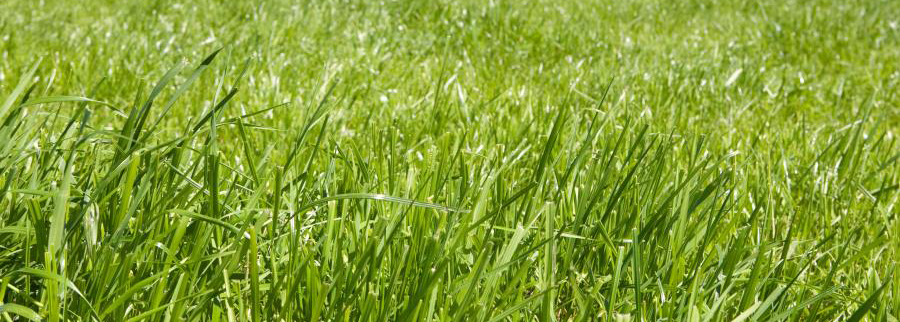In his Budget speech, Finance Minister Grant Robertson said the centrepiece of a $451 million investment in research and development was the establishment of three new multi-institution research hubs focused on health and wellbeing; oceans, climate and hazards; and advanced manufacturing, biotech and energy. The aim is to drive innovation, collaboration, and export-earning potential, bringing public and private sector research together “to solve significant problems and foster growth of our science sector”.
This restructuring of the science sector has huge implications for NZIAHS members and their career prospects. I will be watching with great interest – and some apprehension. The last lot of restructuring did not turn out as well as the politicians promised.
Mr Robertson then said the Government will invest a further $74.7 million in its Industry Transformation Plans, including a welcome $30 million for the horticulture technology sector. This news was fleshed out by Economic Development Minister Barbara Edmonds, who said the $30m will establish the Horticulture Technology Catalyst initiative, to enable horticulture technology experts to provide services such as business coaching and support to growers and the sector.But wait – there’s moreThere was nothing in the Budget speech about the agricultural side of our work, nor any statement from Agriculture Minister Damien O’Connor. But in mid-June, the Government announced a suite of measures to help farmers reduce their greenhouse gas emissions while maintaining their global competitive edge. The features were:
- $17.7 million for a new greenhouse gas testing and research facility;
- $4.3 million invested in soil and grass research, including a faster hybrid breeding system for ryegrass to increase pasture resilience;
- A boost for help and advice for farmers and growers through the Career Pathways Scheme.
The new greenhouse gas testing facility, to provide the permanent measuring equipment and facilities needed to support the Government’s emissions reduction plan without burdening farmers, will be funded by the Centre for Climate Action on Agricultural Emissions, its primary sector joint venture partners, and AgResearch. Massey University in Palmerston North will supply land for the facility and cattle for testing. The facility will include 12 respiration chambers which allow researchers to measure and monitor changes to methane emissions in individual cows.
This followed recent joint venture investments of $2.5 million to further work on a livestock methane vaccine and a $1.8 million boost to develop a slow-released methane-inhibiting capsule. The Government is also backing two new pasture projects with $4.3 million co-invested with industry through its Sustainable Food and Fibre Futures fund looking at soil and grass to help farmers reduce costs, maintain good pastures, and remain a world-leading sustainable producer of high value food.
The ‘Digging deeper: Roots and resilience’ project aims to test whether extended periods of deferred grazing will encourage pasture roots to grow larger and deeper, increasing water and nutrient use efficiency, reducing nutrient losses and increasing pasture resilience to recover from extremities in the weather.
The ‘Ensuring a Sustainable Future Pasture Presence in NZ’ programme will look at increasing the productivity of pasture grass. New ryegrass pastures under development are expected to increase productivity by around 20%, and provide farmers with options to reduce nitrate leaching, increase carbon sequestration and improve water use efficiency.Three big hubsElaborating on the major Budget appropriation for her Research, Science and Innovation portfolio, Dr Ayesha Verrall mentioned:-
· Support for new talent through a $55.2 million investment in research fellowships and to train more PhD students.
· $37.6 million over four years in New Zealand’s association to the Horizon Europe programme.
But the major thrust of Dr Verrall’s statement related to plans for three new multi-institution hubs to increase collaboration in research and science. It’s fair to say Wellington can be crowned as the big winner from the Government’s science plans.
Each hub will be focused on a distinctive area of research:
- Climate change and disaster resilience – this combines expertise from the National Institute of Water and Atmospheric Research, the Institute of Geological and Nuclear Sciences Limited, the Victoria University of Wellington, Massey University “and others” to look at issues like climate change and disaster resilience as part of a national centre for research on oceans, climate and hazards.
- Health and pandemic readiness – this includes a new pandemic centre to ensure New Zealand is prepared for future emergencies. Expertise and resources will be shared between Victoria University of Wellington, University of Otago, the Institute of Environmental Science and Research, the Malaghan Institute and Callaghan Innovation.
- Technology and innovation – this will develop a research, technology and innovation park in Gracefield to bring experts from Callaghan Innovation, Victoria University of Wellington, GNS and the Malaghan Institute together with a focus on advanced manufacturing and materials, energy futures and biotechnology.
The hubs will link talented university students to industry and Crown Research Institutes and increase opportunities for industry training and applied PhDs for exciting careers in science and research.Some reactionsSeveral opinions on the Budget announcements can be found on the Science Media Centre website. The commentators include Dr Axel Heiser, Chief Scientist at AgResearch, who noted:
“Overall, it is pleasing to see significant new investment going into science and a continued push towards greater collaboration and sharing of resources and expertise through the new “Science City” hubs. As has been signalled in the process so far for Te Ara Paerangi – Future Pathways programme, a small country like New Zealand needs to focus its energies on what it can achieve collectively, rather than operating in silos and organisations fighting over every research dollar. That greater collaboration is where Crown Research Institutes like ours are already moving, but more investment certainly helps that process.”
On the other hand, Chris Whelan, Chief Executive of Universities New Zealand, acknowledged tuition funding had been increased in Budget 2023, but he said: “the situation for universities remains precarious.”Cause for concernChris Whelan factored inflation forecasts for 2023 and 2024 into his commentary and found the consumers price index will have gone up 34% over a ten-year period. With the Budget announcement, average student funding will have risen by 16% over the same period —a drop in real terms of 18%.
Those striking statistics have real-world consequences for university staff, students and our wider communities, he observed.
The consequences already are grim, as hundreds of academic jobs at the University of Otago and Victoria University of Wellington face being cut as tertiary institutions tackle ballooning costs and declining roles.
Dr Nicola Gaston, co-director of the MacDiarmid Institute and a professor in the department of physics at The University of Auckland, says the proposed cuts not only jeopardise the national research capability but also highlight the need for a collective approach to address the funding crisis. She is calling for a rethink of how we fund and operate our universities and research institutes. In an article published by The Conversation, she writes-
“The university sector is now undeniably in crisis, with the scale of the cuts – most seriously at Otago and Victoria University of Wellington, but also at Waikato and Massey – becoming clearer in the past few weeks.
“The prime minister and minister of education refuse to interfere in what they see as operational matters, saying universities need to adapt to changing realities.”
I can only agree with her concern that universities face real challenges, from the changing nature of work, to increased expectations of digital learning, and the implications of artificial intelligence tools. But “cutting staff undermines the sector’s capacity to deal with those challenges in the first place – because capacity lies at the heart of this issue.” And, to be fair, we need to note that yesterday we received the news of a further significant cash injection into the tertiary sector; all we can say is that we long to hear some clear strategic statements from each Vice Chancellor of the specific areas of research and education strength they will each focus on, allowing the likely staffing cuts to be focussed on their non-mission-critical subject areas. Without this clarity we will just see across-the-board belt tightening and a stark loss of motivation and expertise.
CongratulationsOn a positive note, it was pleasing to see “science” and “research” mentioned in the career notes on several winners of awards in the King’s Birthday and Coronation Honours List 2023.
 Dr Christopher Howard Wearing (to be an Officer of the New Zealand Order of Merit), won his award for services to entomology and the fruit and orchard industries.
Dr Christopher Howard Wearing (to be an Officer of the New Zealand Order of Merit), won his award for services to entomology and the fruit and orchard industries.
Howard, a pioneer of sustainable pest management in the country’s fruit and orchard industries, played a key role in the implementation of best-practice modern apple production to minimise damage to fruit while maintaining high yields. Since retiring in 2001, he has continued to publish significant research, providing new insights guiding the use of biological control in New Zealand’s low pesticide input and organic fruit production systems.
Among other awards –
 Distinguished Professor Nigel Peter French
Distinguished Professor Nigel Peter French
(to be a Companion of the New Zealand Order of Merit for services to epidemiology) was appointed Professor of Food Safety and Veterinary Public Health at Massey University in 2004. He pioneered the use of genomic sequencing to trace the source of outbreaks of food and water-borne bacteria, community infections, and controlling Mycoplasma bovis in livestock. He was founder and inaugural Director of the New Zealand Food Safety Science and Research Centre.
 Ms Deborah Kennedy Gilbertson
Ms Deborah Kennedy Gilbertson
(to be a Companion of the New Zealand Order of Merit for services to business, science and technology) established Te Kaihau Education Trust in 2006, a consultancy which grows leaders to innovate for a better world. She founded the Emergent Māori Women’s Leadership Programme and the Women in Agriculture Network, which achieved a membership of 10,000 in its first decade of operation. She was a member of the Lincoln University’s Agricultural Economics Research Unit, through which she developed and ran a National Goat Industry Development workshop, which generated $5 million support for the industry.
 Mr Samuel Kevin Prime (to be a Companion of the New Zealand Order of Merit for services to Māori, the environment and health) has been on the governance Board of the Bio Heritage National Science Challenge since 2015, which has sought to solve the issue of Kauri Dieback. His contributions have supported the development of the most successful treatment for Kauri Dieback to date.
Mr Samuel Kevin Prime (to be a Companion of the New Zealand Order of Merit for services to Māori, the environment and health) has been on the governance Board of the Bio Heritage National Science Challenge since 2015, which has sought to solve the issue of Kauri Dieback. His contributions have supported the development of the most successful treatment for Kauri Dieback to date.
 Dr Brian Walter Wickham (to be a Companion of the New Zealand Order of Merit for services to the dairy industry and statistical genetics) has pioneered the use of world-leading animal genetic and breeding evaluation systems to enhance New Zealand’s dairy industry on the international stage. During his 22 years with the Livestock Improvement Corporation, he led the implementation of New Zealand’s National Dairy Herd Improvement Database, widely regarded as underpinning productivity advancement in the dairy industry.>Role to play in GM debateThe National Party’s proposal to end New Zealand’s ban on gene editing and genetic modification inevitably triggered a flurry of concerns. But there was heartening support, too, for National’s commitment to overhaul the regulatory regime “to unlock enormous benefits for climate change, agriculture and health science”.
Dr Brian Walter Wickham (to be a Companion of the New Zealand Order of Merit for services to the dairy industry and statistical genetics) has pioneered the use of world-leading animal genetic and breeding evaluation systems to enhance New Zealand’s dairy industry on the international stage. During his 22 years with the Livestock Improvement Corporation, he led the implementation of New Zealand’s National Dairy Herd Improvement Database, widely regarded as underpinning productivity advancement in the dairy industry.>Role to play in GM debateThe National Party’s proposal to end New Zealand’s ban on gene editing and genetic modification inevitably triggered a flurry of concerns. But there was heartening support, too, for National’s commitment to overhaul the regulatory regime “to unlock enormous benefits for climate change, agriculture and health science”.
Reviewing the regulations already had the support of two Prime Ministers Chief Science Advisors, Science New Zealand, Plant & Food Research, and a gene editing expert panel convened by the Royal Society Te Apārangi.
Science, Innovation, and Technology spokesperson Judith Collins says a National government will make New Zealand’s biotechnology rules fit for purpose “so we can benefit from the huge advances in gene technology…”
National’s Harnessing Biotech Plan will:
- End the effective ban on gene editing (GE) and genetic modification (GM) in New Zealand.
- Create a dedicated regulator to ensure safe and ethical use of biotechnology.
- Streamline approvals for trials and use of non-GE/GM biotech in line with other OECD countries.
The policy document can be read here.
The papers by the Royal Society Te Aparangi highlight the considerable benefits gene editing can bring to our lives and the society’s expert panel says it’s time for an overhaul of the regulations around gene editing. Most certainly it’s time for a robust discussion and scientists have a duty to provide the scientific facts and data that will inform public opinion in a form that lay people can easily understand.
NZIAHS Annual General Meeting
Wednesday 5th July 2023 at 5.00pm
AH1, Ag/Hort Lecture Block, Massey University, Palmerston North
Opportunity for members to attend via zoom. Please use the link below.
Join from PC, Mac, iOS or Android:

Read the latest Hot Topic – on the AgScience website now
#7 In Defence of Reductionist Science in Agriculture and Horticulture.
Written by Dr Jacqueline S. Rowarth, Dr Stephen L. Goldson, Dr John R. Caradus, and Dr Jon G.H. Hickford.
Reductionism is one of those things, like sin, that is only mentioned by people who are against it.’
– Richard Dawkins 1996, The Blind Watchmaker.
Why the Evidence of Evolution Reveals a Universe Without Design, New York: Norton & Company.‘The whole is greater than the sum of the parts’ (translated from ancient Greek)
– an unfortunately all too often cited misquote of Aristotle (384 B.C.E. —322 B.C.E., Book VIII, 1045a.8–10)
READ MORE












